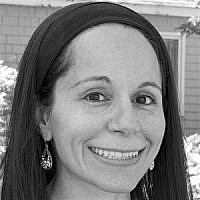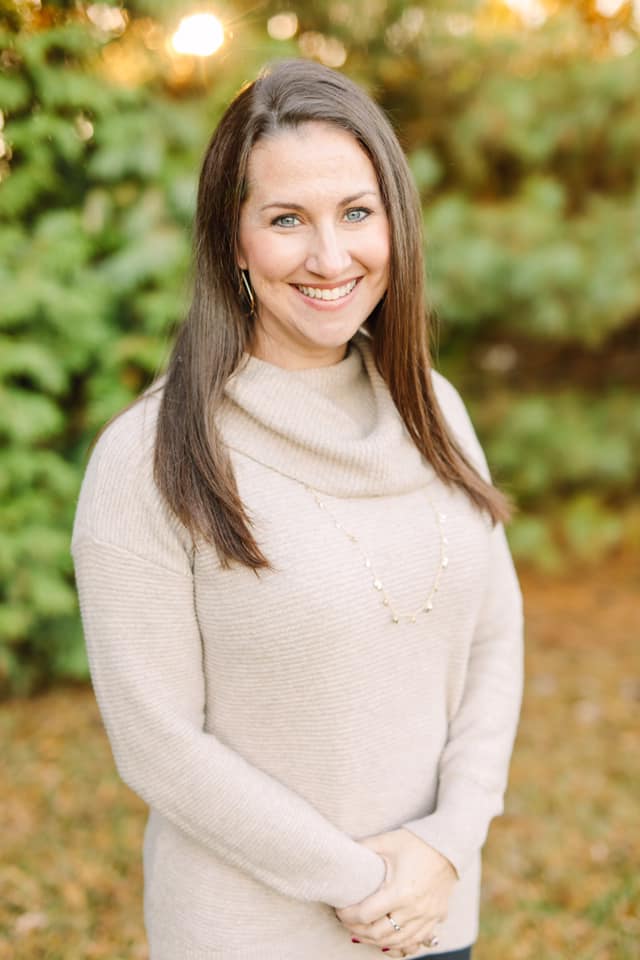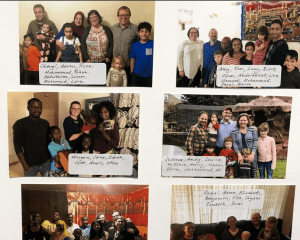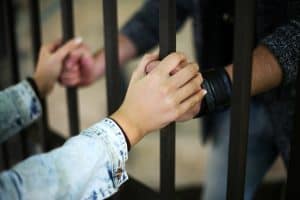“Where are the Jewish leaders who speak for women?”
Dr. Susannah Heschel asks this critical question in her July 27th opinion piece in the Forward. She celebrates Rep. Alexandria Ocasio-Cortez’s recent speech on the House floor condemning Rep. Ted Yoho’s demeaning and insulting language and behavior which, unfortunately, is not unusual for women – especially women of color – to experience.
Heschel accurately addresses the ever-present and pervasive marginalization, inequity and, often, harassment that many – if not most – women experience in the Jewish communal world. In particular, she focuses on the professional Jewish landscape.
Rep. Ocasio-Cortez was speaking for Jewish women because she was sharing an experience to which all women can relate. Her experience as a woman is not “other” than Jewish women, it is inclusive of all of us.
While Heschel poses a critical question and shines light yet again on the very issues that have been fueled by the #MeToo moment, we believe that she, in fact, makes her own point.
“Where are the Jewish leaders who speak for women?” We are right here!
We are working tirelessly every day individually and collectively across our community to speak and advocate for Jewish (and all) women, to shine a light on Jewish women’s work and leadership. We are curating forums, events, and now, webinars, working to end inequity, harassment, assault and abuse. We are speaking and teaching, gathering and organizing, hosting (currently virtual) events, planning and strategizing.
We stand today as a diverse coalition, representing Jewish women from all across the country and the globe, from all walks of life, identities, and religious affiliations: Reform, Orthodox, Conservative, Reconstructionist, Renewal and otherwise affiliated or not; we are Ashkenazi, Sephardi, Mizrachi; we are Black, Indigenous, Latinx, Asian, White, and Multiracial; we are LGBTQ+ and straight; we are philanthropists, CEOs, educators, journalists, volunteers, stay-at-home parents, and more.
And today, as a global pandemic swirls around us, we continue to keep that fight alive even while issues deemed more urgent understandably rise to the top.
Last August, an article titled “The Week That All Jewish Women Turned Invisible” appeared on this website. It was a response to a week where once again, many new male CEOs were announced at legacy institutions, multiple articles were published celebrating male-only leadership, and panels featuring exclusively male-only leadership were convened.
An effort began on a highly active Facebook Group, “Year of the Jewish Woman and Allies” – now home to 3,261 members, and heavily populated with heads of organizations and public speakers and writers who speak out for women every day, and who are in collegial dialogue there – to grow a movement that speaks loudly and powerfully on behalf of Jewish women.
We thank Professor Heschel for shining a light, again, as we seemingly continue to need to, on the egregious inequities and abuses of women in the Jewish community. Doing so as a public figure whose name garners much respect and reverence only helps our cause.
However, we pose a question in return. If someone with her extraordinary background, education, awareness and engagement in the Jewish community is asking: “Where are the Jewish leaders who speak for women?” then how can we expect those who are less informed to support and join this effort? Whose responsibility is it to know who our female Jewish leaders are and raise up our voices and our work? If we do not take an active role in educating ourselves as well as promoting the work of Jewish women’s leadership every day – then how can we rightfully express frustration and anger when others’ voices are not “loud enough” and remain unheard?
“Where are the Jewish leaders who speak for women?” WE ARE RIGHT HERE.
But we ask different questions: Where are the Jewish leaders actively seeking out the organizations, initiatives, and women themselves whose voices deserve amplification? Where are the Jewish leaders actively choosing to fund our work? Where are the Jewish leaders with influence and power who are saying “Look here, these bold Jewish women leaders are valiant and persistent in their struggle for justice, for equity, for safety, and for respect. Let’s join them.”
We are here. We don’t need to be found or for others to speak on our behalf. What we need is the Jewish organizational world to see us as leaders and position us at the heads of our largest tables.
People of stature and influence in the Jewish community: You are part of this work. Make it your business to elevate and amplify Jewish women’s voices, follow our work, use your own voice to give the work greater visibility and credibility. So many women (and men) have stepped up to challenge gender and other inequities, and have spoken as eloquently and forcefully as AOC. Support us, engage with us, listen to our stories.
Nicole Nevarez is National Director of Ta’amod: Stand Up!; Jamie Allen Black is CEO of the Jewish Women’s Foundation of New York; Naomi Eisenberger is Executive Director and Co-Founder of The Good People Fund.
Co-signers: (organizations listed for identification purposes only):
- Ruth Messinger / Jewish Social Justice Consultant
- Barbara Dobkin / Dobkin Family Foundation
- Meredith Jacobs, CEO / Jewish Women International (JWI)
- Sara Shapiro-Plevan, Co-Founder / Gender Equity in Hiring Project; Founder and Lead Consultant / Rimonim Consulting
- Sally Gottesman
- Rachel Weinstein, President / Jewish Women’s Foundation of New York
- Shahanna McKinney Baldon
- Dr. Judith Rosenbaum, CEO / Jewish Women’s Archive
- Eve Landau
- Ginna Green, Strategist and Consultant
- Tania Laden, Executive Director / LivelyHoods
- H. Glenn Rosenkrantz
- Sarah Chandler, CEO / Shamir Collective
- Rabba Melissa Scholten-Gutierrez
- Hazzan Joanna Selznick Dulkin
- Rabbi Rebecca W. Sirbu, Co-Founder / Gender Equity in Hiring Project; CEO / RabbiCareers.com; Engagement Division Director / Hadassah
- Rabbi Steven Bayar, Emeritus / Bnai Israel, Millburn, NJ / Director JSurge
- Naama Haviv, Director of Community Engagement / MAZON: A Jewish Response to Hunger
- Ann Cohen / Ann Cohen & Associates
- Susan Weidman Schneider, Editor in Chief / Lilith Magazine
- Samantha Anderson, Founder & Managing Partner / Ceres Group Advisors
- Jordan Namerow, Founder and Principal / Jordan Namerow Communications
- Rachel Gildiner, Executive Director / GatherDC
- Dana Levinson Steiner, Board of Directors / Jewish Women’s Foundation of New York
- Amanda Katz, Executive Director/JCADA
- Rebecca Youngerman, Founder and Principal / RGY Consulting
- Jodi Bromberg, CEO / 18Doors (formerly InterfaithFamily)
- Deborah Meyer, CEO / Moving Traditions
- Naomi Tucker, Executive Director / SHALOM BAYIT, Ending Domestic Violence in Jewish Homes
- Larisa Klebe, Director / Nishmah: The St. Louis Jewish Women’s Project (a program of the J)
- Dan Brown, Founder and Publisher / eJewishPhilanthropy
- Rabbi Dena Klein / The Jewish Education Project
- Laura Mandel, Executive Director / The Jewish Arts Collaborative
- Rabbi Yael Ridberg / Congregation Dor Hadash
- Rachel Eisen, Co-Founder / Mentoring for Equity
- Sara Miller-Paul, Co-Founder / Mentoring for Equity
- Rabbi Andrea M. Gouze, Temple Beth Emunah / Director of Pastoral Care, New England Sinai Hospital
- Cindy Rowe, Executive Director / Jewish Alliance for Law and Social Action
- Susan Adler, Executive Director / Boston Jewish Film
- Idit Klein, President & CEO / Keshet
- Stephanie Levin, Chief Engagement & Innovation Officer / Peninsula JCC
- Karyn Grossman Gershon, Executive Director / Project Kesher
- Allison Fine
- Dana Sheanin, CEO / JewishLearningWorks
- Rabbi Rachel Ain
- Rabbi Danya Ruttenberg
- Jacqueline Ulin Levey, CEO / WashU Hillel
- Carrie Bornstein, Executive Director / Mayyim Hayyim Living Waters Community Mikveh and Paula Brody & Family Education Center
- Rachel Wasserman
- Daphne Lazar Price, Executive Director / Jewish Orthodox Feminist Alliance
- Rabbi Sharon Cohen Anisfeld, President / Hebrew College
- Laura Hyman, Director / Genesis Pre-college Program at Brandeis University
- Rivka Cohen, Director of Partnerships and Strategic Development / Lissan
- Molly Wernick, Community Director/Habonim Dror Camp Galil
- Rabbi Melinda Zalma / Commander, Navy Chaplain Corps / Program Director, Jewish Community Relations Council-NY
- Rabbi Lisa Gelber
- Susan Weiss, Executive Director / Center for Women’s Justice
- Liz Wolfson
- Micol Zimmerman Burkeman / Hebrew Union College – Jewish Institute of Religion
- Libby Goldstein Parker, Executive Director / Jewfolk, Inc.
- Susan Holzman Wachsstock, The Jewish Education Project
- Sarah Waldbott, Director of Development/ National Council of Jewish Women New York
- Naomi Less, Founding Ritual Leader and Associate Director, Lab/Shul
- Sara Atkins










